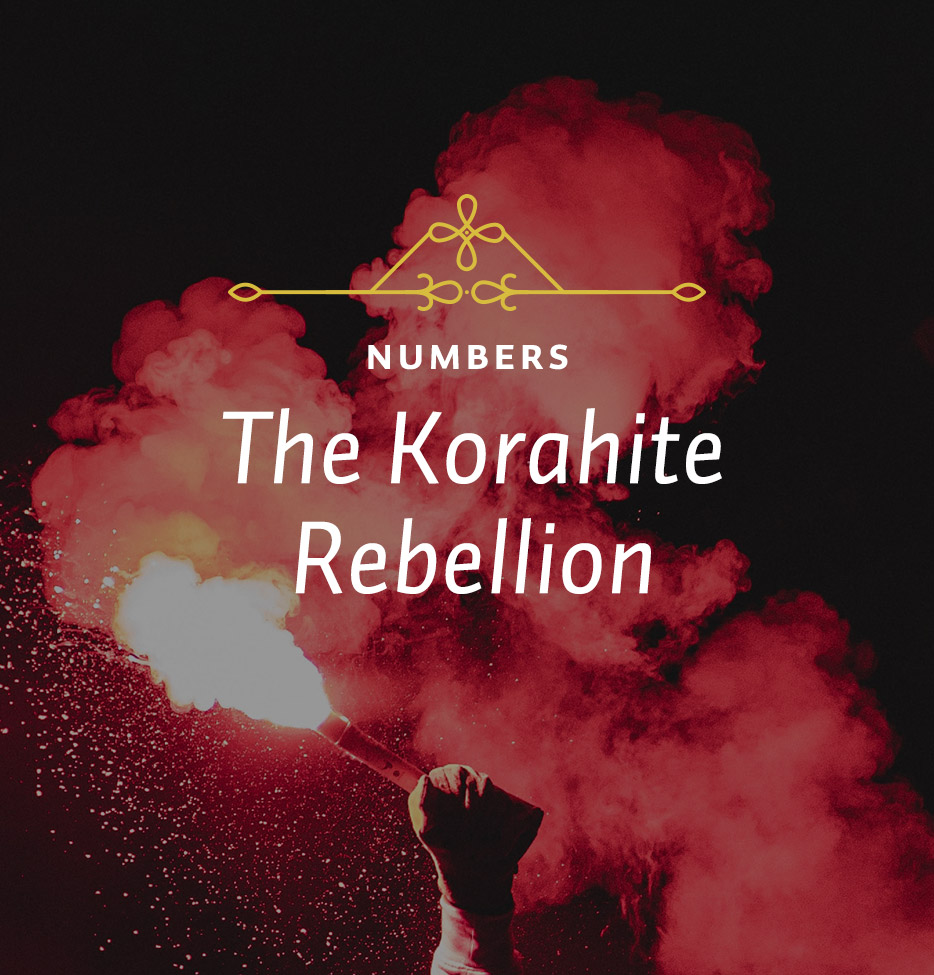In yesterday’s study, we concluded by pointing out that of the wooden staffs taken from each leader chosen from each tribe, on the next morning, only Aaron’s staff had sprouted and even produced almonds.
This is very instructive. The staffs laid out before the Lord were all pieces of dead wood. There was no chance in the world, humanly speaking, that any one of those pieces of wood was going to produce anything. When one of them was fruitful, it’s obviously so because God has blessed it. In the same way, Aaron wasn’t any different from the others. He wasn’t a more holy man than they were. He was a sinner, too, as all God’s servants are. But God had chosen to bless his particular ministry, pointing forward to the coming of Jesus Christ. That’s the way it is. If God has chosen you for a position of leadership, or given you the opportunity to teach a class or Bible study, or to witness to a neighbor, He will bless that. And it’s not because of who you are, but because it pleases Him to do it. In the case of Aaron, we see that God was very much pleased.
It’s interesting that Aaron’s rod wasn’t given back to him. We’re told in Hebrews 9:4 that it was one of the things that was put in the ark, along with the stone tables of the law containing the Ten Commandments and a little golden jar containing some of the manna. These things were a testimony, a reminder, of what had happened.
Note, too, that these things were not laid before the people. They were put in the ark, and the ark was in the Most Holy Place. Nobody could go in there except the high priest, and that only once a year, and when he did he never looked into the ark. These objects were not so much a reminder to the people as a reminder to God. They were a reminder of the holy standard of the law which we have broken, but at the same time they were a reminder that God has appointed a priesthood by which sacrifices are to be made and sin is to be forgiven. It’s a wonderful way of saying that God remembers the work that Jesus Christ has done for us. That reminder is laid up before Him forever. If you have come to God through faith in Jesus Christ on the basis of His work, God doesn’t forget that. You may have periods in your life when you forget Him, but God doesn’t forget. He remembers.
Aaron’s priesthood was important, so important that God judged those who would challenge it. But its most significant meaning is that it pointed forward to Jesus Christ. The New Testament provides an extensive commentary on Numbers 16-17 in Hebrews 4:14-10:39, which are somewhat difficult to understand. These chapters in Hebrews are pretty far removed from what most people are acquainted with today, and the Old Testament is even farther removed. But these ideas are so important that they appear not only in the Old Testament but also in the New. They are at the very heart of what we are talking about when we talk about salvation.
From this, we see several important points. First, just as Aaron was appointed by God to be Israel’s high priest, and did not take that honor upon himself, so also God has appointed His Son Jesus Christ to be our High Priest and Savior. As we read in Hebrews 5, “No one takes this honor upon himself; he must be called by God, just as Aaron was. So Christ also did not take upon himself the glory of becoming a high priest. But God said to him, ‘You are my Son; today I have become your Father.’ And he says in another place, ‘You are a priest forever, in the order of Melchizedek’” (vv. 4-6). This passage reinforces the point that God is the one who determines how atonement shall be made and how we shall approach Him. It’s not for us to do it.
Second, unlike the priesthood of Aaron which, though it was necessary and important, was embodied in imperfect and sinful men, the superior priesthood of Jesus Christ is embodied in one who is utterly perfect and holy. Under the Levitical system, the high priest offered a sacrifice on the Day of Atonement, which was the most important sacrifice of all. But before he did it he had to offer a sacrifice for himself and his family because he was a sinful man. It was only after he offered this sacrifice that he could approach God in the Most Holy Place. But Jesus didn’t have to do that, as Hebrews 7 tells us: “Such a high priest meets our need—one who is holy, blameless, pure, set apart from sinners, exalted above the heavens. Unlike the other high priests, he does not need to offer sacrifices day after day, first for his own sins and then for the sins of the people. He sacrificed for their sins once for all when he offered himself” (vv. 26-27). And Jesus Christ did that once for all because he is the perfect priest.






